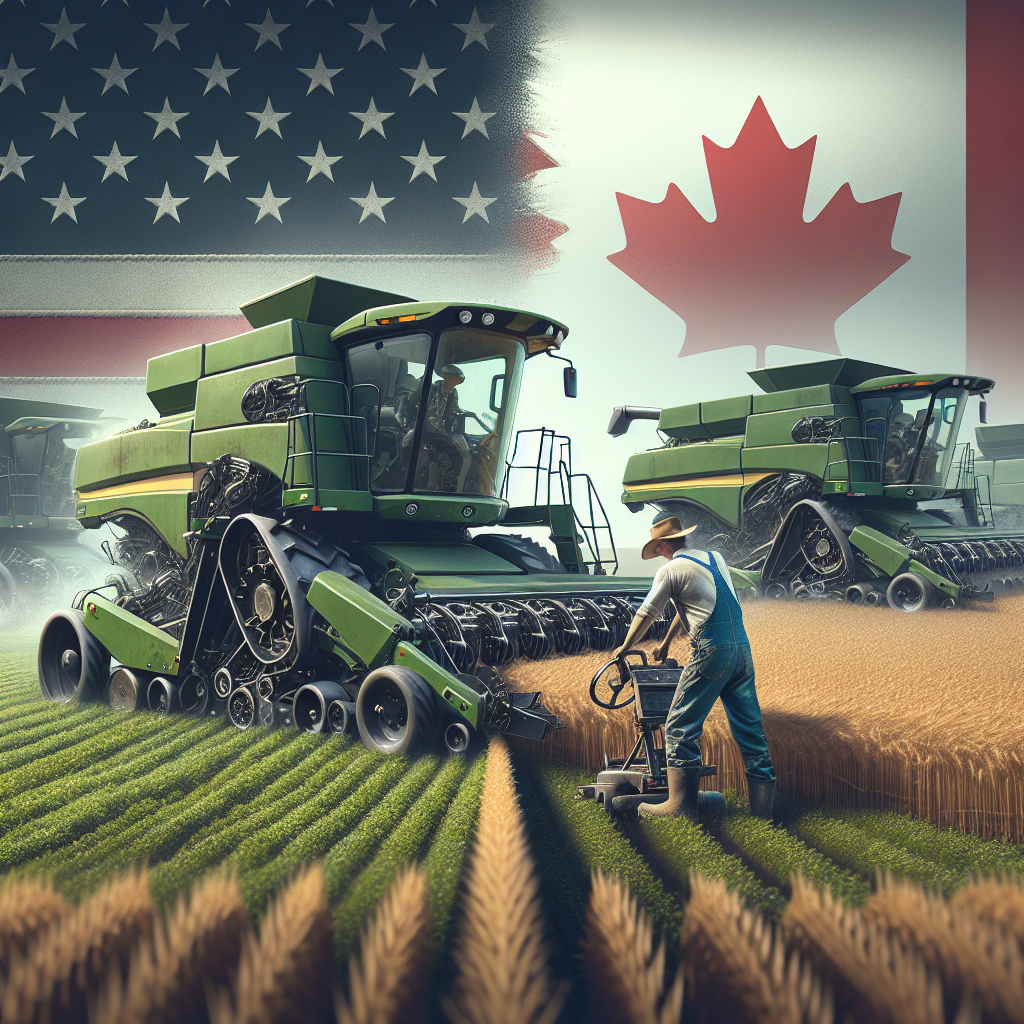Tariffs Threaten US–Canada Precision Agriculture
Business and finance reporter covering corporate news, markets, and economic trends

The burgeoning field of precision agriculture, which leverages technology to enhance farming efficiency, is facing potential setbacks due to tariffs imposed between the United States and Canada. These tariffs, targeting a range of agricultural tools and inputs, could undermine innovations crucial for sustainable farming practices across North America.
Precision agriculture, an approach that integrates data analysis with farming to increase yield and efficiency, has been pivotal in transforming modern agriculture. However, recent tariff implementations between the US and Canada are threatening this progress. The tariffs specifically impact vital components such as fertilizers and machinery, essential for precision farming. According to experts, these tariffs could lead to increased costs for farmers, potentially stifling innovation and adoption of new technologies that are crucial for addressing food security and environmental sustainability. Given the interconnected nature of US and Canadian agricultural sectors, any disruption can have cascading effects on supply chains and market stability.
Industry leaders express concerns about the long-term implications of these tariffs on the agtech sector. The increased costs are not just a financial burden but could also slow down the pace of technological adoption and development. As Asim Biswas from the University of Guelph notes, such economic measures risk undermining the very progress needed to meet global agricultural demands. The precision agriculture market, which heavily relies on cross-border trade for technological components, is particularly vulnerable. If sustained, the tariffs could force farmers to revert to less efficient practices, thereby increasing their carbon footprint and reducing overall agricultural productivity.
Despite these challenges, there are calls for strategic policy adjustments to mitigate the tariffs' impacts. Stakeholders suggest that governments could offer subsidies or incentives for the adoption of precision agriculture technologies to cushion the financial blow. Furthermore, fostering cross-border collaborations and dialogues could help in creating a more resilient agricultural framework. As the global population continues to rise, ensuring that precision agriculture remains viable and accessible is integral to achieving sustainable food production goals. The current situation serves as a critical reminder of the intricate balance required between trade policies and agricultural innovation.
About David Chen
Business and finance reporter covering corporate news, markets, and economic trends